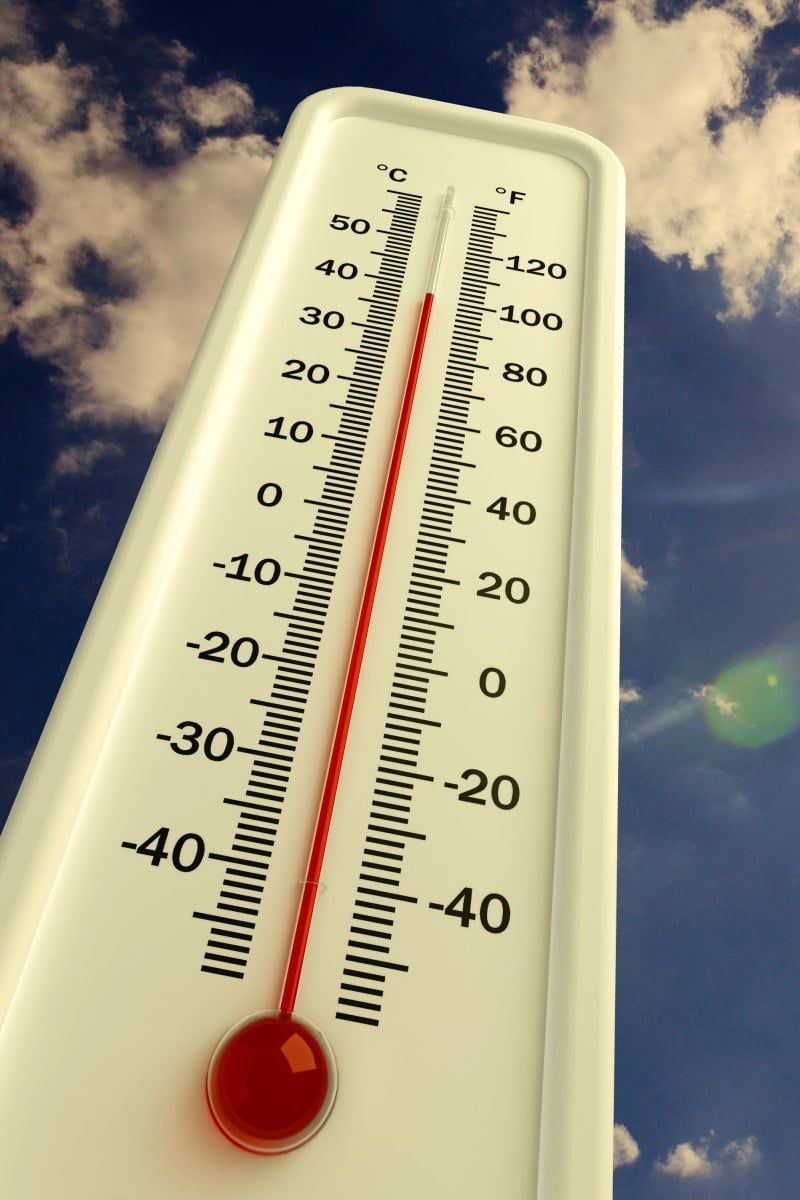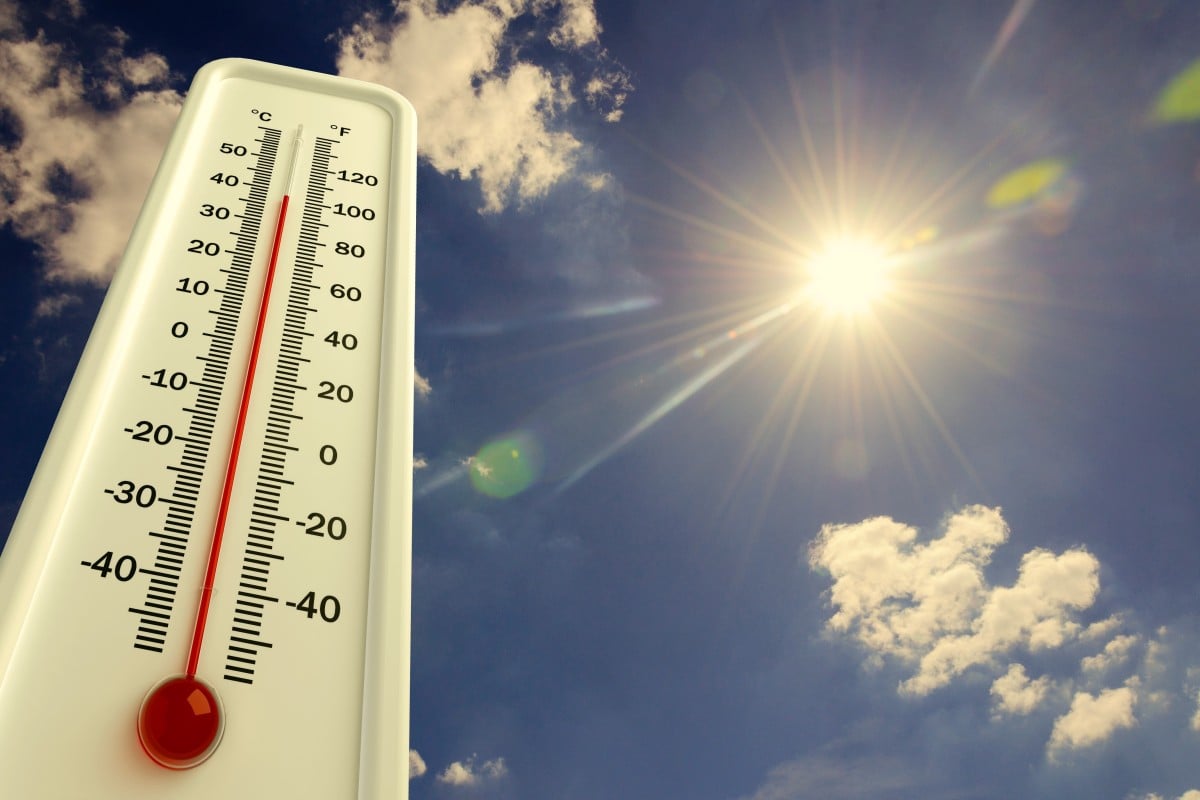
Explainer: What to do if the hot weather makes you sick
- Extreme heat and humidity can be dangerous, so be sure to drink plenty of water and limit your time outdoors
- Learn the difference between heat exhaustion and heat stroke, and when you need to seek emergency help
 Look out for the signs of heat exhaustion and heat stroke - they can cause a lot of damage.
Look out for the signs of heat exhaustion and heat stroke - they can cause a lot of damage.As anyone who has attempted to move around outside in extreme heat can attest, steamy days are hard on the human body.
In the worst-case scenario, a stretch of hot days and, especially, hot nights, can be deadly.
Benjamin Abella, an emergency medicine physician at Penn Medicine in the US, has some tips on how to handle the heat, and what to do if you start to feel ill.
Here’s what you need to know.
Should we rely on air conditioning to stay cool in the summer?
How does the body cope with heat?
Our bodies regulate their temperature in extreme heat by sweating. The sweat evaporates, which cools the skin. This makes your heart rate rise as your body sends more blood to the skin to provide the energy for all that extra sweating, said Edgar Chou, an internal medicine physician at Jefferson Health, a hospital in the US.
This can divert blood from other parts of your body, like your brain or gut. It also uses a lot of fluid, which is why it’s important to drink enough water. “You lose a lot more water than you realise - and salt,” Abella said. High humidity makes things worse, because sweat won’t evaporate as quickly.
How to eat your way to a cool summer
What are the symptoms of heat exhaustion or heatstroke?
Dehydration is the primary problem in extreme heat. Symptoms progress along a continuum, from heat exhaustion to the far more serious heatstroke. The US Centres for Disease Control and Prevention even shows an overlap between heat exhaustion and stroke symptoms.
In the early stages, people sweat a lot and feel thirsty. Urine becomes darker in colour. With heat exhaustion, people may feel tired, dizzy, and weak, Abella said. Headaches and nausea are also common. “We all have to listen to our bodies carefully,” he said. “The folks who get in trouble are the ones who push through.”
Listen to your body and don't try to push yourself if you're not feeling well.
In heatstroke, the body has lost its fight to keep its temperature down. People may stop sweating and develop fevers of 39 degrees Celsius and up. This is an emergency that requires immediate medical attention.
It can cause organ damage and death. Chou said he becomes concerned when patients have temperatures over 37 degrees. People with heatstroke may also become confused or pass out. If someone is vomiting and unable to drink, they likely need medical help.
Easy, refreshing infused water combinations to stay hydrated
Who is the most vulnerable?
Elderly people are at especially high risk because they tend not to feel thirsty the way younger people do. Their bodies also often aren’t as good at regulating temperatures.
Why do the elderly react differently to heat?
People who take diuretics (water pills) for heart problems or high blood pressure need to be especially careful. Those with diabetes can also have blood-sugar spikes if they become dehydrated, Chou said. People in either group may want to talk with their doctors about medication management if they have to be in the heat.
The ultimate Hong Kong summer bucket list
Richard Hamilton, chief of emergency medicine at Crozer-Chester Medical Centre in the US state of Pennsylvania, said people who take certain antihistamines and antipsychotics can also run into trouble because the drugs dry out skin and impair perspiration.
Most emergency visits for heat-related problems, he said, result from a “combination of environment and some kind of medication.” People who feel weak and tired from heat also run into trouble when they decide to take a nap instead of a drink of water, he said.
Drinking plenty of water, and staying cool, is a must in the summer.
What should I do if I feel sick?
This is pretty simple if you catch your dehydration early. Find someplace cool, or at least shady, rest and drink lots of water. You can try sports drinks, but you don’t have to; you can recover just as well with water, fruit, and salty crackers.
Chou suggests drinking cool, not icy, water. Because blood flow to your intestines may be lower than usual, ice-cold drinks can cause cramping.
If you’re really hot, you can take a cool shower or bath.
How to keep your dog happy in the summer
If you live in a house without air-conditioning, open windows, Hamilton said. Sitting in front of a fan while keeping yourself damp with a cold washcloth may be helpful.
However, this might not be enough when temperatures and humidity are high, Abella said, especially for the elderly. That’s when it’s helpful to visit friends and family with AC or go to places like malls that have it. If you have an older relative who lives alone, it’s a good idea to check on them frequently, as people can develop heat-related issues in as little as a few hours.
If you’ve got heatstroke, someone needs to get you to the emergency department. Doctors there will try to bring your temperature down fast by packing you in ice and giving intravenous fluids - Hamilton said his favourite treatment for heatstroke is to cover patients with a wet sheet. Then the staff puts as much ice as they can directly on the patient, which they remove when their temperature starts to drop - usually in about an hour.